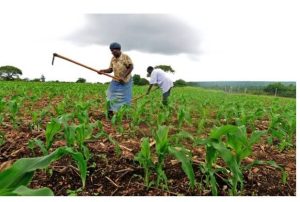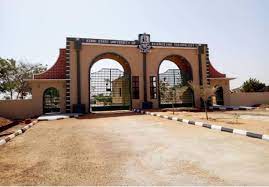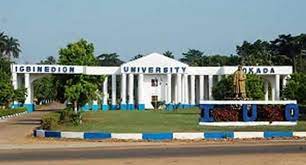Best Universities To Study Agricultural Studies In Nigeria
Best Universities to Study Agricultural science in Nigeria

Best universities to study agricultural science in Nigeria
1. University of Ibadan
The University of Ibadan should top your list if you want to study agriculture in Nigeria. Founded in 1948, it is Nigeria’s oldest university and a leader in agricultural research.
With over 13 faculties and 60 departments, UI offers undergraduate and postgraduate programs in fields like Crop Production & Soil Science, Agricultural Economics, Agricultural Extension and Rural Development, and Animal Science. Their agricultural programs focus on practical learning and preparing students for careers as researchers, educators, and policymakers.
At UI, you’ll get valuable hands-on experience at research farms like the Teaching and Research Farm where you can work with crops like maize, cowpea, yam and cassava. You’ll also have opportunities to participate in community outreach programs where you can apply your knowledge to help local farmers.
If you want to study at one of the top agricultural schools in Nigeria, surrounded by brilliant minds, UI deserves to be at the top of your college search. You’ll gain knowledge and experience that can shape your career and allow you to make valuable contributions to Nigeria’s agricultural sector.
READ ALSO: Best Universities To Study Crop Science Studies in Nigeria
2. Federal University of Agriculture, Abeokuta
Established in 1948, the Federal University of Agriculture in Abeokuta (FUNAAB) is a top choice for studying agriculture in Nigeria. With over 15,000 students across 100 programs, FUNAAB has exceptional facilities and resources for hands-on learning.
For crop production, FUNAAB has research fields and greenhouses to study yields, pest management, and crop improvement. They work with staples like yams, cassava, maize, rice and vegetables. For animal science, FUNAAB has cattle ranches, poultry farms, and fisheries where students gain experience in breeding, nutrition, and product processing.
With its focus on practical learning, strong industry ties, and Nigeria’s largest agricultural university facilities, FUNAAB is a top choice if you want a successful career transforming agriculture. By choosing FUNAAB, you’ll gain the knowledge and experience to make a real impact on the future of farming in Nigeria.
3. Michael Okpara University of Agriculture, Umudike
The Michael Okpara University of Agriculture in Umudike offers innovative programs in agricultural studies. With a focus on practical learning, the university aims to equip students with the skills and knowledge to thrive in Nigeria’s agricultural sector.
A hallmark of the programs at MOUAU is the emphasis on hands-on experience. Students participate in fieldwork, internships, and research projects to gain valuable practical skills in crop production, livestock management, fisheries, agricultural engineering and more. By applying what they learn in the classroom to real-world situations, students develop a deeper understanding of agricultural concepts and practices.
If you’re looking for an innovative, hands-on program to launch your career in agriculture, MOUAU deserves strong consideration. With specialized courses, accomplished faculty and excellent facilities, the university provides a supportive environment for students to gain the skills and experience needed to become leaders in Nigeria’s agricultural sector.
READ ALSO: Best Universities To Study Music in Nigeria
4. Ahmadu Bello University, Zaria
Ahmadu Bello University in Zaria has strong partnerships with major agricultural companies and organizations in Nigeria that provide valuable opportunities for students.
ABU works closely with companies like Olam Nigeria, Notore Chemical Industries and the
The university also collaborates with groups like the Agricultural Research Council of Nigeria, National Agricultural Extension and Research Liaison Services and the National Animal Production Research Institute. These alliances lead to important research partnerships and knowledge sharing.
ABU provides hands-on learning at its student farms, livestock farms and agricultural training centers. Students can gain experience in areas like crop and animal production, soil science, agricultural engineering and more. The university also operates an agricultural demonstration school where students get supervised teaching practice.
With ABU’s industry connections and practical programs, students have a good chance of finding agricultural jobs after earning their degree. The university regularly invites company representatives to campus for recruitment. They also post job listings and internship opportunities to help students find placements.
5. University of Agriculture, Makurdi
The University of Agriculture in Makurdi is known for providing hands-on learning opportunities in agricultural studies.
The University owns and operates several research and teaching farms, including crop farms, livestock farms, and fishery units. Students gain valuable experience conducting experiments and caring for plants and animals. Some farms are specifically for research while others produce crops and livestock for sale, providing funding for the University.
Along with the farms, the University has well-equipped laboratories and experimental stations for subjects like soil science, agricultural engineering, animal science, and more. Students learn practical skills they can apply in their careers.
Conclusion
Nigeria Universities offers one of the best and impressive institutes to study agricultural science in Nigeria
READ ALSO: Best Universities To Study Management Technology In Nigeria
FAQs
Many prospective students have questions about studying agriculture at universities in Nigeria. Here are some of the most frequently asked questions and their answers:
1. What are the entry requirements?
To get into any of Nigeria’s top agricultural universities, you’ll need a minimum of five O’level credits in relevant subjects like Biology, Chemistry, Mathematics, and Physics. Some schools may require a diploma in agriculture or a related field. Specific entry requirements vary between schools, so check with your target university for details.
2. What areas of study are offered?
Nigeria’s leading agricultural schools offer programs in areas like:
- Crop and Soil Sciences
- Agricultural Economics and Extension
- Animal Science
- Fisheries and Aquaculture
- Food Science and Technology
- Forestry and Wood Technology
You can earn degrees ranging from diplomas and certificates to bachelor’s, master’s, and PhDs in these disciplines.
3. How much does it cost to study agriculture in Nigeria?
Tuition fees vary significantly between public and private universities in Nigeria. Public school tuition is more affordable, ranging from ₦150,000 to ₦500,000 per year. Private university fees are higher at ₦350,000 to ₦3 million annually. Additional costs include accommodation, books, field trips, and more. Many schools offer scholarships and financial aid for top students.
4. What career opportunities are there?
Graduates of agriculture programs have many career options like:
- Crop and livestock farming
- Agricultural research and education
- Agribusiness management
- Rural sociology
- Pest control and management
- Food processing and marketing
- Natural resource management
A degree in agriculture can lead to a rewarding career improving Nigeria’s food security and economic growth.









